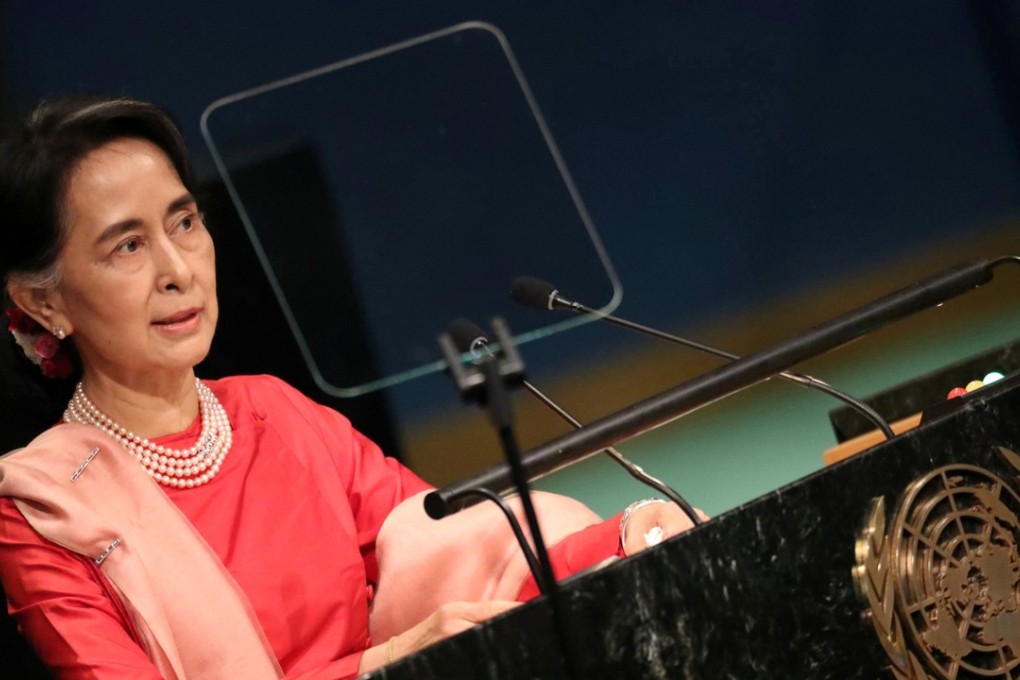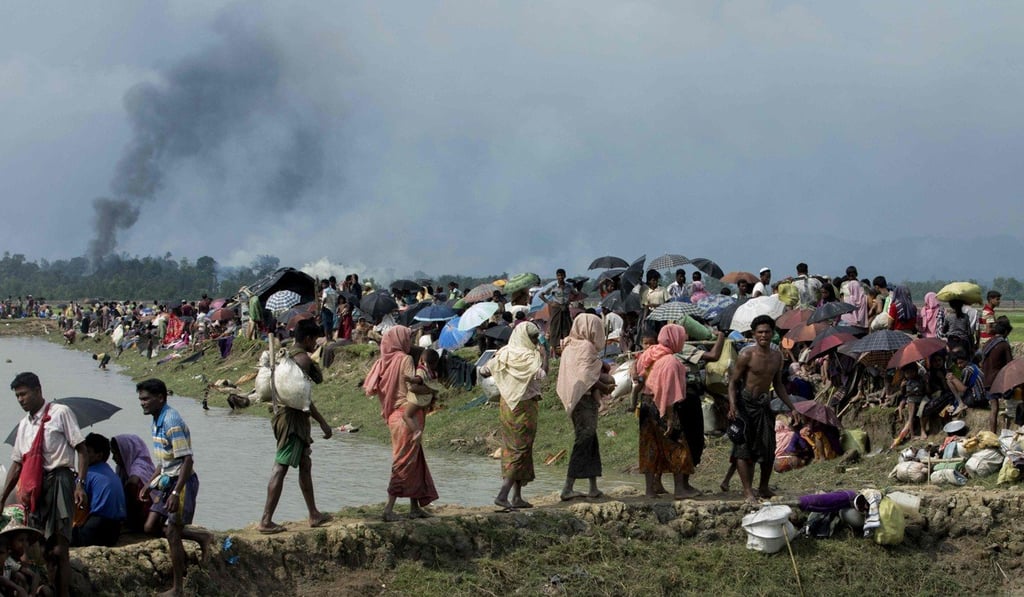Myanmar’s Rohingya crisis: 3 key issues in Suu Kyi’s ‘most important speech ever’
Televised address by democracy icon comes amid stinging international criticism that she has become an apologist for the military’s brutal treatment of the Rakhine state minority

“We are concerned to hear the number of Muslims fleeing to Bangladesh,” she said in the address in English to diplomats, journalists and other international observers.
The address was made in lieu of her appearance at the UN General Assembly this week, which she cancelled as the crisis at home escalated dramatically.
“We have never been soft on human rights in this country. Our government has emerged as a body committed to human rights,” the 71-year-old said.

She added: “It is not the intention of the Myanmar government to apportion blame or to abdicate responsibility. We condemn all human rights violations and unlawful violence. ”
Suu Kyi, who holds the title of state counsellor, said the government was ready to verify the status of the 410,000 refugees who had fled to Bangladesh, but gave no assurances that all of them could return.